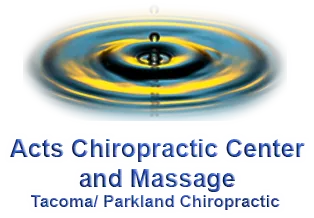What are the most common symptoms of whiplash
The following is a list of the nine (9) most reported symptoms, with their estimated prevalence:
- Neck pain (97%)
- Headaches (97%)
- Shoulder pain (65%)
- Anxiety (55%)
- Back pain (42%)
- Depression (41%)
- Visual symptoms (35%)
- Thoracic outlet syndrome (33%)
- Dizziness (23%)
How long does a typical whiplash injury take to heal?
There is no such thing as a typical whiplash injury. There are so many different variables involved in a collision that its not uncommon for two people to be in the same vehicle, and suffer different degrees of injury. Anyone can be subjected to whiplash, even in a low-force car crash at speeds as low as 5 mph. It should be noted that the older the victim, the more likely it is for injury and disability to occur through whiplash. Therefore, most people have symptoms for at least 6-10 weeks after the injury. Thirty-three percent (33%) of all victims experience some kind of chronic, long-term symptoms.
The three major types of injury that whiplash can cause.
- Muscle Injury - Most whiplash pain involves muscle tissue, since it is the easiest to damage in a collision. During impact, the muscles in your neck are stretched beyond what they normally experience. This is accompanied by swelling and tenderness of the muscles in the neck and shoulders.
- Nerve Injury - Nerves are also stretched during the rapid whiplash motion. Most nerves are able to handle such motion, but if your head is turned or your head restraint is not adjusted properly, the nerves can be stretched too far or pinched. Nerve injuries are more difficult to heal than muscle damage. In most cases, nerves that are trapped by bones or muscles in your spine require more extensive therapy regimens.
- Facet Joint Injury - This can show itself in a variety of ways. Facet (fuh-set) joints are located between each vertebrae in the spine. They allow the attached vertebrae to glide freely so that a person can bend forward, backward, side to side as well as turn or twist. These joints provide feedback to the injury. Treatment of joint damage can be more difficult for many reasons. First, the joint itself does not have a good supply of blood, which makes it hard for the tissues to heal. Secondly, constant motion of the joint and swelling can irritate the injury.
What's the best way to treat a whiplash injury? 
It depends on the severity of the injury and the patient's needs. Very few whiplash injuries require surgical treatment or a hospital stay, but many whiplash patients go to the emergency room as their first treatment, especially if the collision was severe. Drugs are often prescribed for whiplash patients and they can be useful for short-term relief of pain. Long-term use of medications however, can lead to dependency, while offering no assistance in helping the injured tissues heal. The New England Journal of Medicine has found that medical physicians often mistreat whiplash, by using ineffective treatments such as immobilizing the neck with a soft collar "probably prolonging disability." The key to long-term health of soft tissues after injury is mobilization of the affected areas. This is best accomplished with spinal manipulation by a trained Doctor of Chiropractic The key to long-term health of soft tissues after injury is mobilization of the affected areas. This is best accomplished with spinal manipulation by a trained Doctor of Chiropractic such as Dr. James Salmi at his Tacoma office.
How does my on-the-job injury relate to whiplash?
Job injuries involve the same tissues as mentioned previously: Muscles, Nerves and Facet Joints (see above). The injuries are again, best treated by a Doctor of Chiropractic who is trained in finding the exact cause of your spinal injury. Each case requires the Doctor to take a history of the event leading to your injury, performing a detailed examination, taking any necessary x-rays to find underlying causes and then reporting the findings to you the patient so that you understand what caused your injury also! The goal is to find out was is causing your pain, not to medicate you to the point that these important signals of injury are hidden.
Don't wait, call to set up a consultation with Dr. Salmi to see how we may help you! Acts Chiropractic is located in Tacoma/ Parkland/Spanaway area on Pacific Avenue near PLU. You don't have to live with the pain!
253-535-6677

